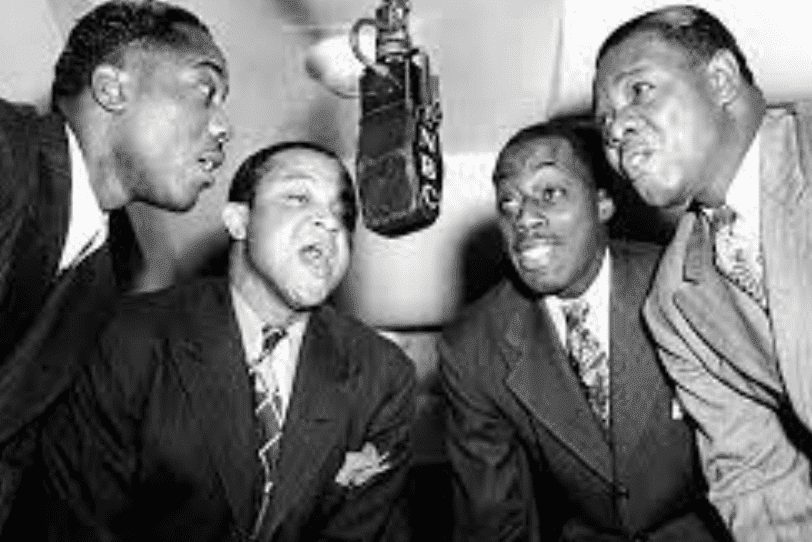Jubilee quartets were a popular genre of African American a cappella vocal music that emerged in the late 19th and early 20th centuries. They played a significant role in shaping the trajectory of American music and had a profound impact on the development of various musical styles, including gospel, R&B, and doo-wop.
Jubilee quartets have their roots in African American spirituals and gospel music. They were initially formed in the late 19th century as gospel choirs, but later evolved into smaller vocal groups. The term “jubilee” was often used to describe jubilant, celebratory songs, and it was applied to these groups because of their spirited performances. They often sang in four-part harmony, which was a distinctive feature of the genre. The early jubilee quartets drew heavily from African American spirituals and folk music. Their lyrics often contained religious themes and harmonious arrangements. Over time, jubilee quartets incorporated elements of popular music, including barbershop harmonies, as well as jazz and blues influences. This fusion of styles made their music more accessible and appealing to a wider audience.
Jubilee quartets played a crucial role in the development of gospel music. The close harmonies and emotional delivery of these groups were key influences on gospel quartets and choirs, which later became central to the gospel genre. Jubilee quartets helped introduce African American music to broader audiences, especially during the early 20th century. Their performances, often filled with exuberance and vocal dexterity, were well-received by both Black and white audiences. The jubilee quartets’ use of harmonies and vocal techniques influenced the doo-wop vocal groups that emerged in the 1940s and 1950s. Doo-wop continued the tradition of close harmonies and vocal interplay. The influence of jubilee quartets can be seen in contemporary musical genres such as R&B, soul, and even modern gospel. The vocal techniques, harmonies, and emotional expression that characterized jubilee quartets continue to shape music today.
In summary, jubilee quartets played a crucial role in the evolution of African American music, serving as a bridge between gospel and secular music and influencing a wide range of musical styles. Their impact is still felt in contemporary music, and they remain an important part of American musical history.


